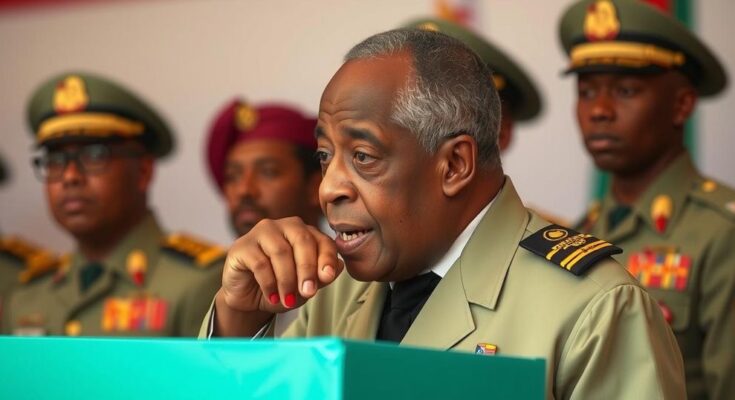Chad voted on Sunday in a general election aimed at ending military rule, although turnout was low at 38% amid opposition calls for boycott. Voters selected representatives for parliament, provincial assemblies, and local councils, reflecting a significant political moment for the nation.
Chad held a general election on Sunday, marking a significant moment in its efforts to transition away from three years of military governance. Despite the government’s assertions that this election is crucial for re-establishing civilian rule, reports indicated a low voter turnout, with preliminary estimates suggesting participation at a mere 38 percent. Voters were tasked with selecting representatives for a new parliament, provincial assemblies, and local councils, amid a backdrop of opposition calls for a boycott of the electoral process.
Chad has experienced a turbulent political landscape since a military junta took control three years ago. The current election is positioned as a pivotal step towards restoring democratic governance in the country. However, the opposition’s decision to urge voters to abstain from participating in the election has significantly impacted the anticipated voter turnout, raising questions about the legitimacy and effectiveness of the electoral process in achieving a true representation of the people’s will.
The general election in Chad represents a critical juncture in the nation’s pursuit of democracy following a prolonged period of military rule. While the government emphasizes the importance of this electoral event, the low voter turnout, fueled by opposition-led boycotts, may undermine the election’s credibility. The outcomes of this election and its implications for Chad’s political future will be closely scrutinized in the coming days.
Original Source: www.caledonianrecord.com




